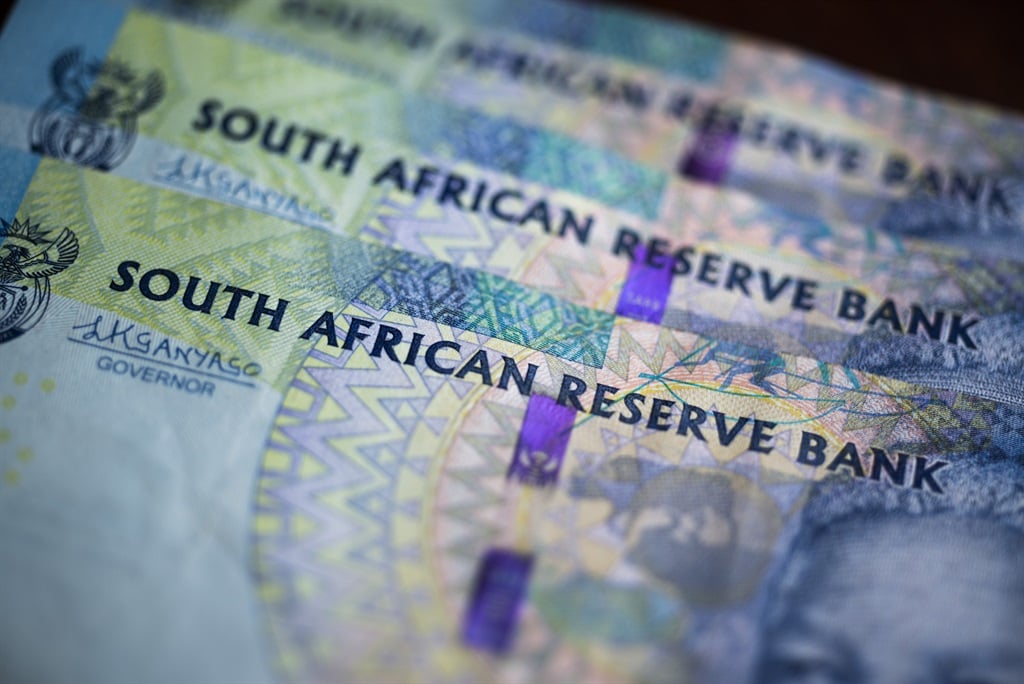News
Rand hits weakest level this year

Photographer: Waldo Swiegers/Bloomberg
- The rand hit R17.60/$ on Monday as the dollar enjoyed a boost from a strong jobs report and expectations that more interest rate hikes are in store.
- The local currency has also been hit by news of a sharp contraction in local business activity.
- The rand started the year at R17.00.
By Monday midday, the rand sank to R17.60/$ as the dollar continued to gain after a forecast-busting US jobs report fanned expectations of more Federal Reserve interest rate hikes.
Adding to a shift away from riskier assets, like the rand, were geopolitical concerns. This weekend, the US shot down a suspected Chinese spy balloon that had floated across the country for days.
The rand has been bleeding hard since Friday, with news of a sharp contraction in local business activity adding to pressure on the currency.
S&P Global’s South Africa Purchasing Managers Index (PMI) fell to 48.7 in January from 50.2 in December.
It was the fastest pace of contraction since the end of 2021 as new orders fell due to load shedding and a limping economy, Reuters reported.
The rand started the year around R17.00/$. It also lost ground against the euro (R18.96) and the pound (R21.19) on Monday.
Heavy blow
The global market rally enjoyed through January has come to a halt this month as investors contemplate an extended period of high borrowing costs aimed at bringing inflation down from multi-decade highs.
A softer tone from the Fed regarding its monetary tightening campaign had allowed market participants to entertain the possibility of a pause, or even a cut, later in the year.
But that optimism was dealt a heavy blow Friday by data showing more than half a million new jobs were created in the United States last month, nearly double the December figure and far more than the 188 000 expected.
Government figures also showed unemployment fell to the lowest level since 1969.
The reading showed the world’s biggest economy remained strong despite almost a year of rate hikes and soaring prices, indicating the Fed still had plenty of work to do to rein in inflation.
“We are concerned that on the back of this kind of jobs report, it definitely holds the Fed to a higher-for-longer path,” said Lisa Erickson at US Bank Wealth Management.
“There are of course other data points that are going to come before the next meeting, but it certainly puts a placeholder that the labour market continues to run some risk of being extremely tight.”
Traders now expect the Fed to keep pushing rates up to more than five percent before stopping.
And San Francisco Fed chief Mary Daly said she was prepared to keep hiking, while rates would also remain elevated for some time.
All three main indexes sank on Wall Street, with the Nasdaq down more than one percent as tech firms took a hit after disappointing earnings from giants Amazon, Alphabet and Apple.
The losses continued in Asia, with Hong Kong falling around two percent, while Shanghai, Sydney, Seoul, Taipei, Bangkok, Wellington Manila and Jakarta were also down.
The JSE’s All Share Index fell almost a percent by Monday midday, with Kumba (-4%) and Northam (-3.5%) among the biggest losers.
London, Paris and Frankfurt opened with losses.
However, there were gains in Tokyo.
Mumbai fell again with embattled tycoon Gautam Adani’s troubled empire suffering more big losses, meaning it has now lost around $120 billion.
Flagship Adani Enterprises, which gained more than 1,000 percent in five years before the rout, was down 2.6 percent, having been off almost 10 percent in early trade.
Trading in Adani Total Gas and in Adani Power was again suspended after the stocks fell five percent.
Traders were keeping tabs on China-US relations after the shooting down of the giant balloon at the weekend.
Pentagon officials described the airship as a “high-altitude surveillance balloon”, adding, without elaboration, that Washington had taken steps to block it from collecting sensitive information.
Beijing hit out at the move, warning it “seriously impacted and damaged” relations, having said earlier that it was a weather balloon that had been blown off course.
The incident dealt a blow to already tense relations, with Secretary of State Antony Blinken on Friday scrapping a planned rare trip to Beijing designed to contain rising tensions.
On currency markets, the prospect of rates going much higher saw the dollar surge against its main peers Friday and it maintained the gains Monday.
The yen was further weakened by a report saying deputy governor Masayoshi Amamiya could succeed Haruhiko Kuroda as head of the Bank of Japan later this year.
Observers said such a move could see the central bank sticking to the ultra-loose monetary policy that has kept it from lifting interest rates.
